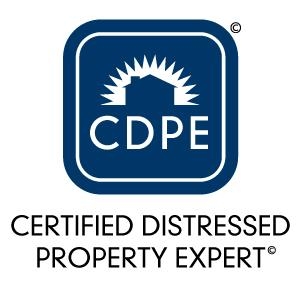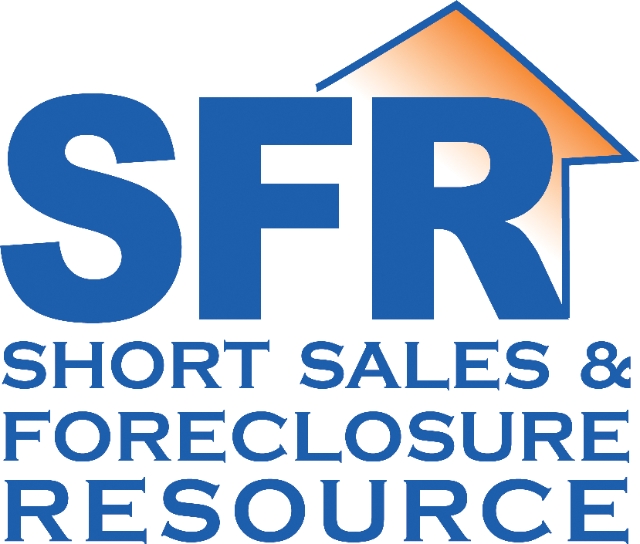Welcome to
Yorba Linda
Orange County Short Sale
Providing foreclosure prevention solutions to
distressed &underwater homeowners
in Yorba Linda, Anaheim Hills, Placentia,
& throughout Orange County.
We are your go to source for the following:
Yorba Linda Short Sale
Anaheim Hills Short Sale
Placentia Short Sale
Orange County Short Sale
This page has a ton of information on Short Sales and the Short Sale Solution. Please visit our Options page to view a full list of Foreclosure Prevention Options
Update, April, 2012: The US Treasure has announced extensions to the Making Home Affordable Programs expiring in 2012 including the HAFA Short Sale program and the HAMP program. For more information about HAFA Short Sales please visit our Making Homes Affordable page.
Yorba Linda
Orange County Short Sale
Providing foreclosure prevention solutions to
distressed &underwater homeowners
in Yorba Linda, Anaheim Hills, Placentia,
& throughout Orange County.
We are your go to source for the following:
Yorba Linda Short Sale
Anaheim Hills Short Sale
Placentia Short Sale
Orange County Short Sale
This page has a ton of information on Short Sales and the Short Sale Solution. Please visit our Options page to view a full list of Foreclosure Prevention Options
Update, April, 2012: The US Treasure has announced extensions to the Making Home Affordable Programs expiring in 2012 including the HAFA Short Sale program and the HAMP program. For more information about HAFA Short Sales please visit our Making Homes Affordable page.
Short Sales in a Nutshell
If you owe more against your home than your home is currently worth in today's market, and are unable or unwilling to pay the difference yourself, you are likely a prime candidate to take advantage of a short sale.
A "Short Sale" is the term to describe the sale of a property in which the leinholder (bank or mortgage holder) allows the sale to proceed even though their payoff is "short" of what is fully owed to them. As real estate values have dropped over the past few years short sales have become more common as banks look to minimize their losses that they incur when having to proceed with costly foreclosures. A good short sale is usually a win-win situation for both the homeowner and the lender.
A "Short Sale" is the term to describe the sale of a property in which the leinholder (bank or mortgage holder) allows the sale to proceed even though their payoff is "short" of what is fully owed to them. As real estate values have dropped over the past few years short sales have become more common as banks look to minimize their losses that they incur when having to proceed with costly foreclosures. A good short sale is usually a win-win situation for both the homeowner and the lender.
Who Can Short Sell?
A typical short sale candidate is a homeowner that has no equity in their home. Additional hardships such as job-loss, reduction in income, divorce, relocation, medical illness, or an interest rate/payment change may help to facilitate the process with your bank. However, your bank's priority is minimizing their loss on the property no matter what the circumstances are.
Most people who we help with short sales fall into these categories:
Most people who we help with short sales fall into these categories:
- They have fallen behind on their mortgage payment and are unable to continue making the payment along with other monthly bills.
- They have not yet fallen behind on their mortgage payment, but are having financial difficulties and are not able to afford mortgage payments going forward.
- They are not behind on their mortgage payment, but need to move and sell their home for a variety of reasons such as a job transfer, retirement, health reasons, or to move closer to other family member.
The Short Sale Process, Step-by-Step
- Step 1: Assembling the Short Sale Package. This consists of gathering up all of the financial documents that your bank will require that we send to them. This typically includes your last 2 years of tax returns, 2 months of bank statements, and recent paystubs. It also typically includes a letter, written by you, the borrower, explaining the situation. We work very closely with my clients on assembling a suitable package for submission. Timeframe: 1 day to 1 week.
- Step 2: Listing the Property. Preparing the listing paperwork, viewing & pricing your property, and listing the property. Timeframe: 1-5 days
- Step 3: Marketing the Property. We market our short sale listings as aggresively as we do any other listing. Many agents choose to cut corners when listing short sales, thinking they can still get offers by simply pricing the property low. This strategy typically backfires during the negotiation period with the bank. Timeframe: We almost always get our listings sold (accepted offer) within 30 days.
- Step 4: Negotiating the Short Sale. After we have received and accepted and appropriate offer, we then submit the offer, along with the Short Sale Package from Step 1, to the lender. On average, this process typically takes 2-4 months before we ultimately get an approval. Some banks take as little as 30-60 days. One bank is now approving within 5 days! However, a few of the largest banks still take an average of 4-6 months. I am typically in contact with your bank a minimum of 3 times a week during this process. Timeframe: 2-4 months on average.
- Step 5: Approval to Closing: Once approval is issued by the bank we are typically looking at closing in 3-4 weeks, sometimes less. I make sure that the buyer is moving diligently throughout this process. Timeframe: 30 days.
Costs and Fees Associated with Doing a Short Sale
All costs, charges, and fees that would normally be paid by the seller in a traditional real estate transaction are paid by the lender in a short sale. These would include broker commissions, title fees, escrow fees and other customary settlement charges. There is no short sale cost that is paid by the seller.
Some agents attempt to charge an additional ‘negotiation fee’ in addition to more customary commissions. They try to get the lender, the buyer, and sometimes even the seller to pay this fee. We do not charge a separate ‘negotiation fee’ as we feel that it is not in the best interest of our clients. These fees often will prevent buyers from making offers on properties and hold up already potentially lengthy negotiations with your bank.
Short Sales, Foreclosures, 1099’s, and Taxes
Many people have heard that they should not short sell their property because they will receive a 1099 and have to pay taxes on the difference between what they owe and what the property sold for. Yes, you will receive a 1099-C for debt cancellation from your bank. However, the majority of people who short sell are able to exempt themselves from tax liability for various reasons. The most common exemption falls under the Mortgage Forgiveness Debt Relief Act of 2007 for federal income tax. At the state level, there is a similar California Debt Relief exemption. You should consult your tax professional to determine if you qualify for the federal and/or state debt forgiveness exemptions or if you are exempt under other criteria, such as insolvency.
Many people overlook the fact that they will also usually also receive a 1099 (a 1099-A) if their property is foreclosed on. In over 95% of default properties, the lender will suffer a greater loss by foreclosing on a home than by participating in a short sale. Thus, even if you have to pay tax on your 1099 amount, you will have a lower 1099 from a short sale, and therefore will have a lower tax liability.
Please visit our Do I Pay Taxes on a Short Sale, Foreclosure, or Loan Modifications? page for more information.
Please visit our Do I Pay Taxes on a Short Sale, Foreclosure, or Loan Modifications? page for more information.
Once again, always consult your tax professional regarding your personal tax consequences of short selling or being hit with a foreclosure.
What Short Sales Do & Don’t Do To Your Credit
There are many different components and variables as to how a short sale affects your credit. What typically affects a borrower’s credit score the most during a short sale is not typically the short sale itself, but the missed mortgage payments prior to the sale. Once you fall 30 days behind on your payment your lender is reporting you late to the credit bureaus. Getting 60 and then 90 days late compounds the hit to your FICO. The short sale itself is typically reported as something along the lines of “settled for less than full”. This is highly preferable to having “Foreclosure” reported on your credit report. A typical foreclosure, including late missed payments and the foreclosure hit itself, usually results in a 200-300 point FICO hit.
Sometimes we are able to negotiate short sales where the homeowner has stayed current on their mortgage payment right through the short sale. When this happens there is a relatively minimal effect on a credit report and score.
All credit experts agree that having a short sale on your credit is always better than having a foreclosure on your credit.
Please visit our Credit Reporting After a Short Sale, a Foreclosure, or Bankruptcy page for more information.
Please visit our Credit Reporting After a Short Sale, a Foreclosure, or Bankruptcy page for more information.
It is always a good idea to consult a credit scoring expert regarding your credit consequences of doing a short sale and your credit consequences of foreclosing.
Will I Be Able to Purchase a Home Again in the Future?
The short answer is ‘yes’. As long as your overall credit remains in tact and that you meet other borrower qualifications (income, debt ratios, etc), a borrower who has a short sale or ‘preforeclosure sale’ (another name for a short sale) is eligible to receive another mortgage after 2 years according to Fannie Mae’s guidelines for conforming loans. By comparison a foreclosure will keep you on the sidelines for at least 5-7 years and will follow you forever, even once it drops off of your credit report after 10 years. Almost every loan application will ask if you have ever foreclosed or filed bankruptcy. You are free to answer ‘no’ to this question if you were able to complete a short sale.
Please visit our Credit after Short Sale, Foreclosure, or Bankruptcy page for more details.
Can I Really Get My Bank to Approve my Short Sale?
In 2007 & 2008 most banks were not as willing to cooperate with short sales and were not setup to handle the short sale process. However, we have seen steady improvement since the beginning of 2009.
Banks are now receiving federal dollars as incentives to cooperate with short sales. Banks also DO NOT want to foreclose on properties unless they absolutely have to. Banks are not in the business of owning real estate, and incur very excessive costs when foreclosing, including legal fees as well as carrying costs while they own the property.
An asset manager from one of the larger banks recently shared this finding with me: On average the bank loses $50,000 from the time a property goes into default when they have to foreclose on it. While the bank also takes a loss on a short sale, it is usually better financially for the bank to work with you on a short sale than to foreclose on the property.
I’ve missed my First Mortgage Payment. How Long Before my Lender Can Foreclose on Me?
In California, once you have missed your first payment the lender can file a Notice of Default. 90 days later they can then file a Notice of Sale providing 25 days notice of the foreclosure. Your lender can technically foreclose as early as just under 4 months from when you go late on your payments. In most cases the process will be delayed somewhere along the way and will take a bit longer than what is legally required.
Please visit our California Foreclosure Timeline page for more details.
I Think that I Should Short Sell. How Long Should I Wait and What Should I Do?
I Think that I Should Short Sell. How Long Should I Wait and What Should I Do?
As soon as you realize that you can no longer afford to make your payments or keep your home, you should contact us as soon as possible. Just like going to the doctor to get something checked out, the earlier we “catch it” the more likely we are to have success. Please email us or call 714-989-6176 so that we can arrange for a private, no-cost, no-obligation professional consultation.
If you still aren't sure that the Short Sale Solution is what you want, then please visit my Free Loan Modification page.
If you still aren't sure that the Short Sale Solution is what you want, then please visit my Free Loan Modification page.
Special Short Sale Programs for Specific Borrowers:
Wachovia Fast Track Solutions
If your loan is with Wachovia you can take advantage of the best short sale program that any bank has! Please visit my Wachovia Fast Track Solutions page for more information. This program is almost too good to be true!Wachovia Fast Track Solutions
Chase Certified Distressed Property Expert Agent incentive up to $30,000!
If your loan is with Chase and you receive a letter offering you an incentive between $10,000 to $30,000 to do a Short Sale with a Certified Distressed Property Expert Agent, please visit my Chase Certified Distressed Property Expert page.



The information provided on this website is of a general nature and should not be construed as tax or legal advice for any particular individual as individual circumstances vary. Short sales may have tax, legal, and credit consequences and we always advise consulting with your tax & legal professionals prior to entering into agreement to short sell.


